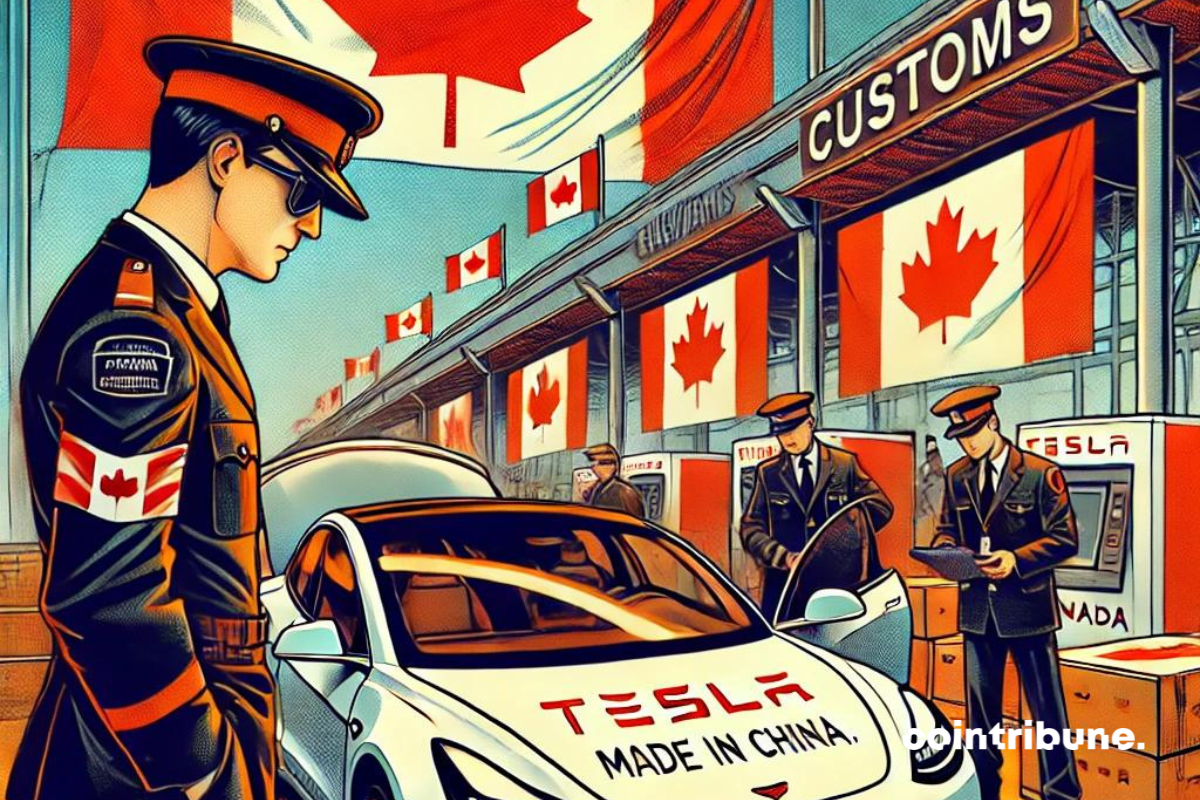Canada Adds Fuel to the Fire with 100% Tariff on Chinese Electric Vehicles
- 王林Original
- 2024-08-28 03:38:09780browse
Prime Minister Justin Trudeau's announcement of a 100% tariff on electric vehicles (EVs) imported from China, including Tesla models manufactured in Shanghai, marks a significant step in the country's trade policy.

Canada has announced a 100% tariff on certain imports, including electric vehicles (EVs) from China, sparking concerns over trade tensions and its impact on the Canadian economy.
The Canadian government has announced the implementation of a 100% tax on certain imports, scheduled to take effect on October 1st. This measure, justified by Ottawa as a necessary response to China’s overproduction practices, aligns with similar policies in the United States and the European Union.
Canada accuses China of seeking to dominate international markets unfairly, which has led to this firm decision.
In 2023, Chinese vehicle imports at the Port of Vancouver soared by 460%, primarily due to shipments of Tesla models manufactured in Shanghai to Canada. This situation perfectly illustrates the growing influence of Chinese trade strategies on the Canadian market and echoes the recent tensions between China and the European Union regarding taxes on electric cars.
Moreover, this new tax aims to encourage investments in the local supply chain of electric vehicles. Canada thus seeks to position itself as a major player in this rapidly expanding sector.
China’s response was swift. The spokesperson for the Chinese embassy in Ottawa immediately denounced this tax as a “protectionist” and “politically dominant” measure. He accuses Canada of flouting World Trade Organization (WTO) rules.
The consequences of this decision on trade relations between Canada and China could be severe. As Canada’s second-largest trading partner after the United States, China could consider retaliatory measures by targeting Canada’s strategic exports such as oil, canola, and other raw materials.
Moreover, this situation could force automakers, like Tesla, to reconsider their production and logistics strategies, leading to higher costs and disruptions in the supply chain.
Through this significant decision, Canada takes a bold stance in its trade policy. However, it risks causing repercussions in the global electric vehicle market and international relations, particularly in the face of a China always ready to retaliate with very explosive measures.
The above is the detailed content of Canada Adds Fuel to the Fire with 100% Tariff on Chinese Electric Vehicles. For more information, please follow other related articles on the PHP Chinese website!

